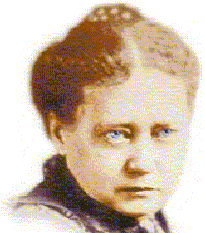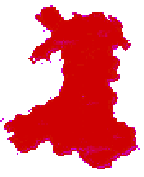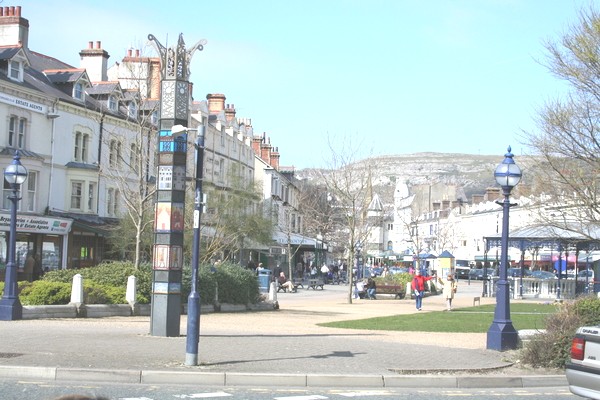THE
LIFE OF
H
P Blavatsky
H
P BLAVATSKY’S
EARLY
LIFE
Helena Petrovna
Blavatsky was born Helena Petrovna Von Hahn on the night of 30/
Her father Peter
Alexeyevich von Hahn was an officer in the Russian Royal Horse Artillery. He
was descended from the Prussian aristocracy. Shortly after he married Helena
Andreyevna he was called into war and his wife returned to her parent' home
when their daughter Helena was born. Helena Andreyevna wrote novels concerning
restricted Russian women and was called the George Sand of
HPB and her mother and
sister Vera traveled in 1837 to the Russian
In 1838 the family moved
to
HPB’s mother died on 6th June 1842 when Helena was twelve,
but later Helena would say that her mother had died when she was a baby. The
question is why did Helena Blavatsky deny the
existence of her mother in her childhood. It is true that she grew from a
sickly baby into a problem child subjected to hysteria and convulsions. When
dying her mother observed sadly, "Ah well, perhaps it is best that I am
dying, so at least I shall be spared seeing what befalls Helena. Of one thing I
am certain, her life will not be that of other women, and she will have much to
suffer."
This statement that her
mother died when she was a baby seems to suggest that there was strife between
the mother and daughter. It indicates a conflict between the wills. That Helen
resented her mother's long absences, her intimate friendships in the bohemian
world of letters, and felt it as a desertion of the home and herself.
Her mother seemed to have hurt her pride.
One day when Helena was
four she was walking by the river bank with one of her nurses while a serf-boy
of fourteen followed them and annoyed Helena by pulling her perambutor.
She them imitated one of her father's roars threatening to have the russalkas tickle the boy to death. The boy being scarred, took to his heels over the river bank. He was not
seen again until fishermen discovered his dead body weeks later.
Her memory of this
incident is not surprising when view in perspective with other incidents of her
childhood. Those who took care of her, besides her parents, were serfs and
women who had learned and believed in superstitions. At the time Old
According to legend it
was believed that supernatural beings could be placated or even controlled by
people like
It was not that the
household servants thought that
change as a child because,
it seems, after the servant boy drowned, plus the attention she was receiving,
she felt she was powerful and invulnerable, and increasingly believed that
mighty forces would carry out her wishes. A belief that
seemed to permeate her life.
Her only happy childhood
memories seem to be between six and twelve in her father's army camps. She was
petted and spoiled as the enfant du regiment. She
tyrannized over her father's orderlies whom she preferred to her female nurses
and governesses. While being pampered she managed to pickup a smattering of
knowledge about shamans and magic which she put to good use later in life.
After the death of their
mother, at age 28,
Helena's first love
affair, at age 16, had been with Prince Alexander Galistin,
cousin to the Viceroy of the
When 17 she married
General Nicephore Blavatsky. There are several
stories for this marriage, but it seems to be that a governess had scolded
Actually he was around
forty when they married and outlived her. After three unhappy months of a
honeymoon, HPB managed to escape from the General's bodyguards and return to
her grandfather who was not glad to see her. Her quickly shipped her off to her
father, now retired and living near St. Petersburg, in charge of a maid and
three men servants, all of whom she escaped. Her father traveled two thousand
mile for nothing to meet her in
History
of the Theosophical Society
Find out more about
Theosophy
with these links
Cardiff Theosophical Society meetings
are informal
and there’s always a cup of tea afterwards
The Cardiff Theosophical Society Website
The National Wales Theosophy
Website
Theosophy
Cardiff’s Instant Guide to Theosophy
Theosophy
Cardiff’s Gallery of Great Theosophists
Dave’s Streetwise
Theosophy Boards
The Theosophy Website that
welcomes
If you run a Theosophy Study
Group, please
feel free to use any material on
this Website
Independent Theosophy Blog
The Most Basic Theosophy
Website in the Universe
A quick overview of
Theosophy
and the Theosophical Society
If you run a Theosophy Study
Group you
can use this as an introductory handout.
One liners and quick explanations
About aspects of Theosophy
The Voice of the Silence Website
An Independent
Theosophical Republic
Links to Free Online
Theosophy
Study Resources; Courses, Writings,
The main criteria for the
inclusion of
links on this site is that they
have some
relationship (however tenuous) to Theosophy
and are lightweight, amusing or
entertaining.
Topics include Quantum Theory
and Socks,
Dick Dastardly and Legendary Blues Singers.
An entertaining introduction to Theosophy
For everyone everywhere, not just in Wales
It’s all “water under the
bridge” but everything you do
makes an imprint on the Space-Time
Continuum.
A selection of articles on
Reincarnation
Provided in response to the
large number
of enquiries we receive on this
subject
No
Aardvarks were harmed in the
National Wales Centre for Theosophy
Blavatsky Wales Theosophy Group
The
Spiritual Home of Urban Theosophy
The Earth Base for Evolutionary Theosophy
The Birmingham Annie Besant Lodge
_______________________
Tekels Park
to be Sold to a Developer
Concerns about the fate of the wildlife as
Tekels Park is to be Sold to a Developer
Concerns are raised about the fate of the wildlife as
The Spiritual Retreat, Tekels Park in Camberley,
Surrey, England is to be sold to a developer.
Tekels Park is a 50 acre woodland park, purchased
for the Adyar Theosophical Society in England in 1929.
In addition to concern about the park, many are
worried about the future of the Tekels Park Deer
as they are not a protected
species.
Anyone planning a “Spiritual” stay at the
Tekels Park Guest House should be aware of the sale.
Tekels Park & the Loch Ness Monster
A Satirical view of the sale
of Tekels Park
in Camberley, Surrey to a
developer
The Toff’s Guide to the Sale of
Tekels Park
What the men in top hats have
to
say about the sale of Tekels Park
____________________
The Theosophy
The Theosophy
Cardiff Guide to
The Theosophy Cardiff
Guide to
The
Theosophy Cardiff Guide to
The Terraced Maze of Glastonbury Tor
Glastonbury and Joseph of Arimathea
The
Grave of King Arthur & Guinevere
Views
of Glastonbury High Street
The
Theosophy Cardiff Guide to
_____________________
A B C D EFG H IJ KL M N OP QR S T UV WXYZ
Complete
Theosophical Glossary in Plain Text Format
1.22MB
___________________________
Classic Introductory
Theosophy Text
A Text Book of Theosophy By C
What Theosophy Is From the Absolute to Man
The Formation of a Solar System The Evolution of Life
The Constitution of Man After Death Reincarnation
The Purpose of Life The Planetary Chains
The Result of Theosophical Study
_____________________
Preface to the American Edition Introduction
Occultism and its Adepts The Theosophical Society
First Occult Experiences Teachings of Occult Philosophy
Later Occult Phenomena Appendix
Try these if you are looking
for a
local
Theosophy Group or Centre
UK Listing of
Theosophical Groups
Pages About
General pages about Wales,
Welsh History
and The History of Theosophy in
Wales
Wales is a
Principality within the United Kingdom
and has an eastern
border with England. The land
area is just over
8,000 square miles. Snowdon in
North Wales is
the highest mountain at 3,650 feet.
The coastline is
almost 750 miles long.
The population of
Wales as at the



